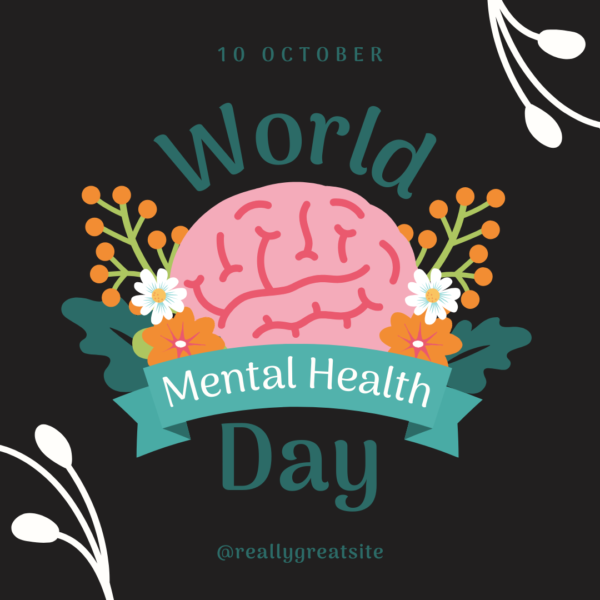
World Mental Health Day is an important occasion that reminds us to pause and reflect on the well-being of our aging loved ones, as well as ourselves. While physical health often takes center stage, mental health is equally vital, especially as we journey through the later stages of life. In this blog, we will explore the significance of mental health in aging adults and offer insights that readers can apply to their own lives or share with their aging parents.
The Importance of Mental Health in Aging Adults
Aging is a unique and beautiful journey filled with opportunities for growth, reflection, and new experiences. However, it can also bring challenges such as loss, health issues, and a sense of vulnerability. These challenges can affect mental health, making it crucial to prioritize emotional well-being.
1. Addressing Loneliness and Isolation
As we age, social circles may naturally shrink due to factors like retirement, mobility limitations, or the loss of friends and loved ones. Loneliness and isolation can take a toll on mental health, leading to feelings of sadness and depression.
Takeaway: Encourage regular social interaction for your aging loved ones. Whether through community activities, senior centers, or even virtual meetups, maintaining connections can have a significant impact on their emotional well-being.
2. Coping with Loss and Grief
Aging often comes with the loss of close friends, partners, or family members. Grieving and coping with loss can be challenging, and it’s crucial to address these emotions to maintain good mental health.
Takeaway: Encourage open conversations about loss and grief. Professional support from therapists or support groups can also provide valuable resources for processing these feelings.
3. Managing Anxiety and Stress
Stressors in the lives of aging adults can range from health concerns to financial worries. Chronic stress can contribute to a decline in mental health and overall well-being.
Takeaway: Promote stress management techniques such as mindfulness, meditation, or relaxation exercises. Encourage seniors to engage in activities that bring them joy and relaxation.
4. Promoting a Sense of Purpose
Retirement can bring newfound freedom but may also leave some feeling a lack of purpose or direction. This can impact mental health negatively.
Takeaway: Encourage your aging loved ones to explore hobbies, volunteer opportunities, or even part-time work that aligns with their interests and skills. Finding a sense of purpose can have a positive impact on mental health.
5. Overcoming Stigma and Seeking Help
Unfortunately, there is often a stigma surrounding mental health issues, preventing many aging adults from seeking the help they need. This can exacerbate mental health challenges.
Takeaway: Foster an open and supportive environment where your loved ones feel comfortable discussing their mental health concerns. Encourage professional help when needed.
Supporting Aging Adults on Their Mental Health Journey
Here are some practical ways to support aging adults in maintaining good mental health:
1. Encourage Regular Health Check-ups
Regular medical check-ups are an excellent opportunity to assess and address both physical and mental health. Make sure your aging loved ones keep up with their healthcare appointments.
2. Promote Physical Activity
Physical activity is not just beneficial for the body; it also positively impacts mental health. Encourage seniors to engage in regular exercise, even if it’s just a daily walk or chair yoga.
3. Create a Safe and Open Environment
Foster an environment where aging adults feel comfortable discussing their feelings, fears, and concerns. Ensure they know that seeking help for mental health issues is a sign of strength, not weakness.
4. Engage in Activities Together
Participating in activities with your aging loved ones can boost their mental well-being. Whether it’s playing games, going for a walk, or working on a craft project, shared experiences can bring joy and connection.
5. Explore Mental Health Resources
Familiarize yourself with local mental health resources and support groups. Be prepared to connect your aging loved ones with professionals who can address their specific needs.
Conclusion: Nurturing Mental Well-being in Aging Adults
This World Mental Health Day, let’s emphasize the importance of mental health in aging adults. By addressing loneliness, grief, stress, and other challenges, we can help our aging loved ones enjoy their later years with happiness, resilience, and a sense of purpose. Open conversations, encouragement, and access to mental health resources are the key to a positive mental health journey for seniors.
Remember, aging doesn’t have to be a time of loneliness or despair. It can be a chapter filled with wisdom, growth, and new adventures. Let’s ensure our aging parents and loved ones embrace their golden years with well-nurtured mental health and a profound sense of fulfillment.



